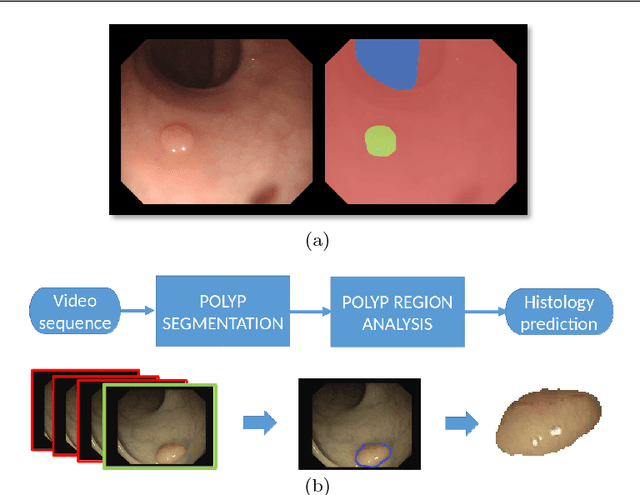Gloria Fernández-Esparrach
Enhancing Image Classification in Small and Unbalanced Datasets through Synthetic Data Augmentation
Sep 16, 2024Abstract:Accurate and robust medical image classification is a challenging task, especially in application domains where available annotated datasets are small and present high imbalance between target classes. Considering that data acquisition is not always feasible, especially for underrepresented classes, our approach introduces a novel synthetic augmentation strategy using class-specific Variational Autoencoders (VAEs) and latent space interpolation to improve discrimination capabilities. By generating realistic, varied synthetic data that fills feature space gaps, we address issues of data scarcity and class imbalance. The method presented in this paper relies on the interpolation of latent representations within each class, thus enriching the training set and improving the model's generalizability and diagnostic accuracy. The proposed strategy was tested in a small dataset of 321 images created to train and validate an automatic method for assessing the quality of cleanliness of esophagogastroduodenoscopy images. By combining real and synthetic data, an increase of over 18\% in the accuracy of the most challenging underrepresented class was observed. The proposed strategy not only benefited the underrepresented class but also led to a general improvement in other metrics, including a 6\% increase in global accuracy and precision.
A Benchmark for Endoluminal Scene Segmentation of Colonoscopy Images
Dec 02, 2016



Abstract:Colorectal cancer (CRC) is the third cause of cancer death worldwide. Currently, the standard approach to reduce CRC-related mortality is to perform regular screening in search for polyps and colonoscopy is the screening tool of choice. The main limitations of this screening procedure are polyp miss-rate and inability to perform visual assessment of polyp malignancy. These drawbacks can be reduced by designing Decision Support Systems (DSS) aiming to help clinicians in the different stages of the procedure by providing endoluminal scene segmentation. Thus, in this paper, we introduce an extended benchmark of colonoscopy image, with the hope of establishing a new strong benchmark for colonoscopy image analysis research. We provide new baselines on this dataset by training standard fully convolutional networks (FCN) for semantic segmentation and significantly outperforming, without any further post-processing, prior results in endoluminal scene segmentation.
 Add to Chrome
Add to Chrome Add to Firefox
Add to Firefox Add to Edge
Add to Edge